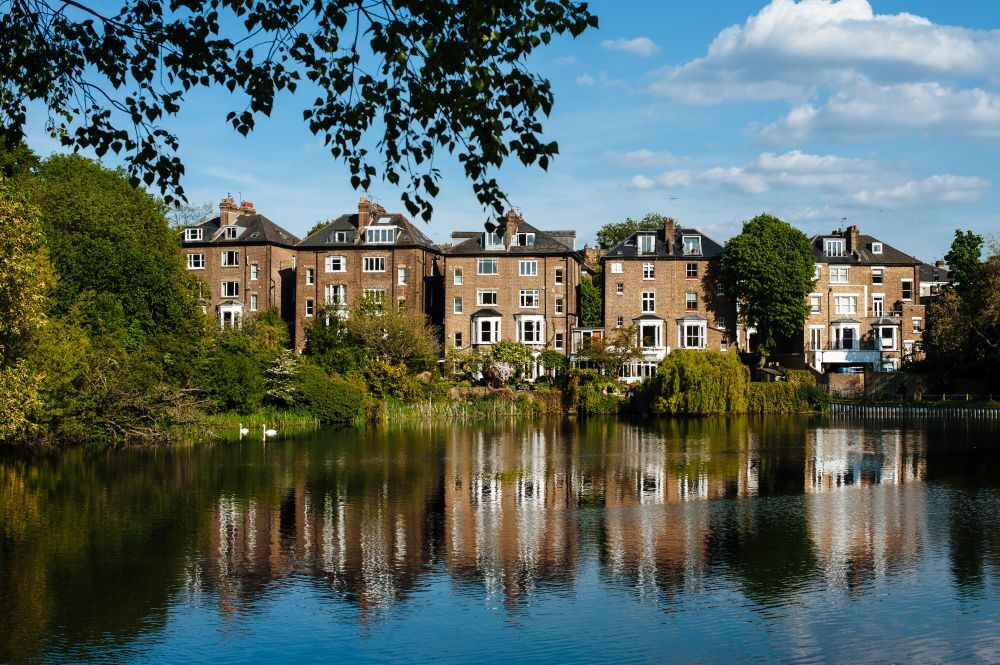7 Questions To Ask Estate Agents For Buyers In 2026
Whether you’re a first-time buyer or already a proud owner, when dipping into the property market, it pays to remember that estate agents are the gatekeepers of this industry. Estate agents have a lot of information to offer potential buyers about the property they’re looking at, and if the agent doesn’t have all the information, they always know who will.
It is important when buying any property, to ask the agent questions. The more you ask early on, the better a position you will find yourself when it comes to purchasing the property. There are many pitfalls to buying but not all of them have to remain hidden until the day you pick up the keys.

The Right Questions To Ask Estate Agents
Why ask questions? Your position as a buyer can be easily compromised by various factors that you may or may not be aware of when you first begin to look at a property. The key areas that will most affect your attempts to buy a property will always be:
Finances: understanding offers made on the property compared with the property’s real value in the current market. The position of the current owner is also something to consider and whether they need a quick sale or are happy to wait for the right offer to come in.
The Neighbourhood: local crime rates, transport links, schools, and amenities all affect the value of the property and, whether it is a worthwhile investment.
Planning: upcoming local developments such as roads, shopping centres, or new housing estates can have a massive effect on property value, so buyers should look to prior planning permission history when considering the possible need for renovations in the future.
Hidden Costs and Agreements: checking for extra costs such as service charges associated with a building is vital to ensure buyers do not get caught by hidden fees. It is also worth doing due diligence to establish the particulars of the freehold agreement.
With all that in mind, you could conduct your own due diligence by looking into a property before approaching an agent. Checking local records as well as listing prices for other properties in the area is a great way to familiarise yourself with the local market.
However, you will inevitably want to talk to an agent at some point, and the following are the questions we feel you should ask first, even if it’s to confirm an answer you may already have found on your own.
Have there been any previous offers on the property?
It’s crucial to get an understanding of factors that have come into play before you enter into a possible bidding war. Being direct with the agent and finding out as early as possible if the property has had multiple offers is great for establishing your position but, asking further questions about the position of the owner on the offers which have come in, may be even more informative.
The agent may not choose to disclose this to you but, if they are willing to tell you whether certain offers have been accepted and give an indication of how much higher you will have to go with an offer of your own to secure the property potentially, this will save a lot of your time in deciding whether making an offer is the right step for you.
Are there upcoming infrastructure projects in the surrounding area?
Local developments greatly impact property value. If a new housing estate is planned within a mile of the property you’re interested in, this means more people and more traffic in the local area and potentially, an avenue to reduce the asking price from the owners. On the other hand, improvements to the local area and transport connections could drive the price of the property up, as the area becomes more desirable to live in.
It's important to access such information as soon as possible, and your estate agent should have all of this information as it is their business to know the ins and outs of the local area. Asking them for insights is a useful way to decide if buying a property in certain areas is aligned with your expectations and if it’s the right decision for you.
What’s the crime rate in the area?
Even in some of the richest communities in the world, crime can still be an issue for property owners. Expensive homes can attract attempts from burglars to break in, but crime in the local area can also harm property values.
By asking about crime in the local area, you can familiarise yourself with the risks of buying the property and potentially, use this as a negotiating tactic over the price. However, if your estate agent does not have this information or is less willing to talk about crime rates, you will have to consult other sources, but always ask them first and if necessary, check their response with your findings.
Are there any service charges or maintenance fees?
Some properties, particularly those within a residential building, can come with service and maintenance charges embedded within the ownership. If you’re buying an apartment within a building, you should expect ongoing fees as part of your purchase, and asking an agent about them right at the start is a smart move.
Factoring in fees for ongoing maintenance and other services at a property can have a strong influence on your decision. If you’re buying a property in an older or listed building, maintenance costs and service charges can easily run into the tens of thousands, as older buildings, although beautiful, tend to require much more upkeep compared with modern dwellings.
Is there planning permission in place?
Planning permission can have a significant impact on the value of a property, especially if a plan for modifying a property has already been approved by the local authority. This could be anything from adding another floor to the building to the creation of an off-road parking space or garage.
If a property doesn’t currently have planning permission in place, you can ask an estate agent about the building history and whether the current owners have made modifications or renovations in the last few years. If the answer is no, this could be an indicator that the property might be harder to develop, and could impact your decision if you had planned on making renovations or modifications after purchasing.
How does the property compare to others in the area of similar value?
It is almost certain that your estate agent will be aware of or, actively trying to sell similar properties in the surrounding area. This means you can ask about how the home you’re planning to view, compares to those of a similar value nearby, and see what the agent thinks. The agent may be able to provide insights into not just the property you’re viewing but also, other properties in the area which may potentially, be more suited to your preferences.
With solid market knowledge, agents are in the best position to assert the value of the property you’re viewing, understand your needs as a buyer, and tailor that to another property they think might be more in line with what you’re looking for. Make the most of their expertise by asking about other homes selling in the area.
What transport links and amenities are nearby?
Have you considered the local area layout in terms of transport and amenities for living? Transport links don’t just include local rail connections or highways. Links to airports, congestion zones, bus lanes, and roadworks are all important factors when considering the liveability of a property. Agents should be aware of all the local developments and connections and can be asked about this to better inform a buyer’s perspective of the area.
The same is true of amenities, including restaurants, shopping centres, and access to groceries, medical facilities, schools, etc. Any good estate agent should be instantly able to recommend local options for amenities, so make sure you have as much information as possible about the local area and its liveability before deciding to buy.
Always Ask an agent
By asking targeted questions about previous offers, upcoming developments, area safety, service charges, planning permissions, and nearby amenities, buyers can ensure their investment meets both financial goals and personal preferences for any property.
Estate agents are a resource for buyers to utilise when acquiring their next property and should be used sparingly to ensure that the buyer is making the right decision before completing a purchase.



